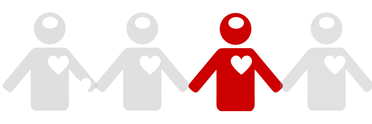
Currency of Empathy: Q&A with Jackie
1. Why did you write this book? How did you go from chemistry (at MIT) to a corner office (with the global strategy consulting firm McKinsey & Company)…to empathy?
Like everyone else these days, I was trying to make sense of what sometimes feels like a crazy world. I saw and felt a lot of issues and didn’t think the available solutions were helping. For example people like Facebook COO Sheryl Sandberg telling us to “lean in” didn’t seem like a good answer for working women. I had been there and done that. When I had a corner office, a baby, and a toddler, I didn’t feel like I had it all. I felt like I was on my knees… literally, in the closet, trying to get ready for work while comforting a crying toddler who begged me not to leave again. And praying for more peace of mind. And scrambing for time. I also didn’t see many people talking about the full value of parenting, for children AND parents. So I wanted to offer alternatives that made more sense.

As I dug into empathy I saw a theme that addressed so many of the challenges we face. Challenges like:
- 70% of people saying they are disengaged at work.
- The rise in anxiety and depression in kids.
- the dearth of women in leadership, 50 years after the feminist revolution. It’s not really about women and gender. It’s about children and caring.
But understanding empathy at an intellectual level was just a small part of it. Research shows that hands-on parenting grows empathy in the brain, and I’m no exception. This book was really born with our kids.
2. What do you mean when you say “currency of empathy”?
I’m talking about our uniquely human superpower and lifeblood of empathy. We’re built for it. By focusing on so much on GDP and short-term curren$y growth (as companies and a society), we’ve underinvested in our most valuable natural and relational currency – empathy. Doing so has created an palpable empathy deficit which contributes to the dis-ease we feel as a society, and often even in our own bodies. When our natural empathy is depleted. People don’t feel connected and understood. It hurts us all. Physically. Emotionally. Spiritually. We see signs of this dis-ease everywhere, from the political divisions – and I don’t care whether you sit to the right or left, or in the middle – the tone of conversation in the media, or the fact that work organizations are painful places for a lot of people. Even many of our physical and mental health crises are linked to our empathy deficit disorder, in my view. Focusing on growing a currency of empathy can turn it around. It’s time.
3. What have been the impacts on society of devaluing empathy? (see book intro for more)
There are a lot of things we lament and consider disconnected but they’re not. They ferment in our empathy deficit. Things like:
- So many leaders being indicted for serious crimes, like manipulation of our data, mass environmental poisoning, and even rape.
- Black men being shot and incarcerated
- White men in the US being the first demographic in all of world history to have increasing mortality.
- Even the earth is not escaping unharmed. No matter what you believe about climate change, the challenge of environmental toxicity and increasing natural disasters shows a lack of empathy for future generations.
- And millennials are paying attention to all of this and voting with their reproductive organs, opting not to have children, putting the US fertility rate at a 30-year low.
4. You say empathy is a contact sport – what do you mean?
Just as you can’t think your way into 6 pack abs, you can’t think your way into whole, healthy empathy! You have to practice. You have to build the muscles, and that happens between people. It’s relational. It especially happens between parents and children.
We get our foundation for this muscle memory of empathy in childhood. Before we have words. We signal our distress, our joy, our curiosity….to parents and family and loving caregivers. When they respond, they fill up our internal pot of gold of healthy empathy, according to neuroscientist Simon Baron Cohen. At that stage, it’s the emotional, body feeling of empathy, called affective. Our capacity for intellectual perspective taking and cognitive empathy develops later.
Then, we have a chance to remember this healthy affective empathy when we care for others. Especially if we have the chance to care for children, our own or others’. Infant cries are hard to hear for good reason. Kids emotions can bring us great joy and cut us to the quick. They get our attention because their survival depends on it. Responding to those cues with caring is such important work, not just for the kids, but also for the adults!
Yet, the US ranks last in the developed world for paid parental leave. We are one of 3 countries left in the world that do not guarantee paid maternity leave. The others are Papua New Guinea and Oman. This is unconscionable and leaves most people with no choice but to leave their kids in the care of others from a very young age. Then, those who can be home with kids often feel devalued.
But I’m here to say to anyone who spends any time at home taking care of young children or nursing a sick child or maybe taking care of an elderly adult: rest assured you’re developing a superpower of Affective Empathy that you can’t get with a Harvard MBA! No amount of empathy training at school or work can match caring for people in real life!!
5. What areas of potential change does the book address? Where can we go from here to grow the currency of empathy?
The first half of the book clears up 3 commonly held mix-ups that are doing us harm. It redefines leadership as co-creative rather than the lonely guy at the top of a pointy pyramid. It challenges the notion that we need only a small amount of quality time at home while spending large quantities of time at work. Finally, it makes the case for why caring is not just women’s work. It’s all done with a lot of stories and some research.
The second half of the book paints a new vision for the future that brings work and home together again, which technology has made possible in ways that are unprecedented. This one change helps integrate a lot of other things that have been separated, like parenting and “leadership,” women and men,….children’s voices and the future.
6. What do you mean healing from our mix-ups about sex in the book? How are we still mixed-up (#metoo, women in leadership) so long after the “feminist revolution?”
Yes! I go there!! Sex in terms of sex, and sex in terms of gender. Sex is really the heart of the matter.
If you look at the biological design, reproduction is a 50:50 joint venture. It sets up an equal opportunity to care, not just with your head or your heart, but with your hands. Too often and for too long, men have been boxed out of this equation, and it’s hurt them. We have deprived them of the chance to grow more empathy.
Women ARE more empathic – it’s true – but it’s not because of who we are, it’s because of what we DO. What we’ve DONE for millennia. There is nothing in our genetics that precludes men from developing empathy. All human beings all built for it.
And when that happens – when there is an equal opportunity to grow empathy – what a wonderful world it would be…..No one will have to say #MeToo, because 0 empathy sports like bullying, assault, discrimination, harassment and worse will have no players. See, when you can feel that what you’re doing causes pain to another person, you can’t do it. You’re too connected with others. They don’t feel so different or separate. So, a lot of other mixups would have trouble thriving in a new wave of empathy….any –ism you can imagine would be starved of motivation.
True, mature empathy is that powerful.
7. Isn’t empathy overused and a burden? We see ALL the bad and suffering thanks to inet?. Are we supposed to feel it all? How do you protect yourself?
It’s overused, yes, but most people are just talking about cognitive empathy. The intellectual perspective taking. Training people in cognitive empathy when their affective empathy is lacking is actually a problem. You know who has high cognitive empathy but low or no capacity for affective empathy? Psychopaths. They know you feel bad and can manipulate you brilliantly, but it makes them feel good!
And people who are sensitive – who have a high capacity for affective empathy – can be hurt or depleted, it’s true. I feel it myself. We hurt with others’ suffering. By others’ bullying. Even by the news, which is so negative. The answer is not to shut down your feelings, even if we could, because that just perpetuates the empathy deficit disorder. But you can and should limit your exposure. Know when to turn off the TV (not now!) of step away from a toxic interpersonal dynamic, and find peace. Meditate. Hug your dog. Hug your children, your spouse, your mom or dad. Go for a walk with a friend. Empathy is selfish first, so you have to take good care of yourself to have something to give to others. You have to find ways to fill up your “bucket” too. You can’t always be giving and expect to have anything left.
8. If this book changes one thing, what do you hope it is?
That we value caring – especially parenting, in all the ways people come to it – in a way that helps us reprioritize how we spend our time, grow the superpower of affective empathy in children and adults, and heal our empathy deficit disorder. It’s that simple, even if it’s not easy.
9. What do you do when you’re not writing about empathy?
I’m an entrepreneur with my own strategy and leadership consulting firm. We focus on cultural transformations centered in empathy, where it matters most and seems impossible….like in the Cleveland Police.

